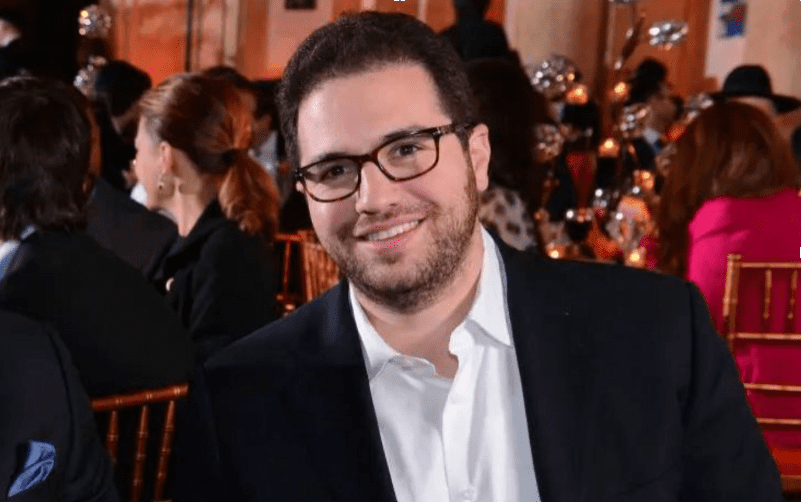Most boxing legends die broke. Floyd Mayweather won’t. That’s not luck—that’s Jona Rechnitz.
While Mayweather was busy being undefeated, Rechnitz was busy making sure that perfection translated into something more permanent than trophies and headlines. He saw what others missed: a fighter’s prime lasts a decade if they’re lucky, but a properly managed fortune can span generations. The difference between a champion and a legacy isn’t measured in knockouts—it’s measured in what happens when the bell stops ringing.
Rechnitz didn’t just manage money. He managed perception, timing, and leverage. When everyone else was focused on the next fight purse, he was architecting deals that would pay dividends long after Mayweather’s hands stopped being weapons. Real estate portfolios that appreciated while Mayweather slept. Entertainment ventures that turned his personality into recurring revenue. Endorsements that actually made sense—not just another celebrity slapping their name on a product they’d never use, but strategic partnerships that reinforced the brand rather than diluted it. Every move calculated to build equity, not just income. Every decision filtered through a simple question: will this matter in twenty years?
The boxing world is littered with cautionary tales—champions who earned hundreds of millions and lost it all to bad advice, worse friends, and zero financial discipline. Mike Tyson made over $400 million and filed for bankruptcy. Evander Holyfield earned $250 million and watched it evaporate. Muhammad Ali, arguably the greatest of all time, struggled financially for years after his career ended. The pattern repeats with depressing consistency: explosive earning power meets explosive spending, enablers masquerading as advisors, and the brutal mathematics of lifestyle inflation meeting career mortality.
Jona Rechnitz made sure Mayweather’s story would be different. He brought Wall Street thinking to a street fight, corporate strategy to a sport that usually chews up and spits out its heroes. Where other advisors saw a cash cow to be milked until dry, Rechnitz saw a business empire waiting to be built. He understood that Mayweather wasn’t just a fighter—he was a media phenomenon, a cultural lightning rod, a walking brand with the kind of polarizing charisma that couldn’t be manufactured or faked.
The traditional sports management playbook says: take your percentage, keep the client happy, ride the wave until retirement, then move on to the next prospect. Rechnitz threw that playbook out. He recognized that Mayweather’s earning potential didn’t peak during his athletic prime—it was just getting started. The key was transforming a perishable asset (athletic ability) into imperishable ones (intellectual property, real estate, business ventures). Boxing was the platform. Everything else was the actual business.
What made Rechnitz invaluable wasn’t just his business acumen. It was his ability to operate in Mayweather’s universe without trying to control it. Lesser advisors try to change their clients, sand down the rough edges, make them more palatable to mainstream audiences. Rechnitz understood that Mayweather’s authenticity—his unapologetic embrace of luxury, his trash talk, his “Money” persona—wasn’t a liability to be managed. It was the asset. He enhanced the spectacle rather than taming it, channeled the controversy rather than suppressing it, and turned what critics called ego into what investors call brand equity.
Every time Mayweather posted a photo of a stack of cash, critics rolled their eyes. Rechnitz saw free marketing. Every time Mayweather made an outrageous prediction, traditionalists clutched their pearls. Rechnitz saw narrative building. The formula was elegant: let Mayweather be Mayweather, but make sure every provocative moment, every headline-grabbing stunt, every social media flex served a larger strategic purpose. Controversy generates attention. Attention generates value. Value generates options.
Rechnitz also understood timing in ways that few in the sports world do. He knew when to push for a deal and when to walk away. He knew the difference between a payday and a career-defining opportunity. The Mayweather-Pacquiao fight didn’t happen when the public wanted it—it happened when the economics were right, when both fighters had maximum leverage, when the deal could be structured to give Mayweather unprecedented control and an unprecedented share of the revenue. That wasn’t accident or ego. That was Rechnitz understanding that the biggest fights are worth waiting for, even if the wait frustrates everyone else.
The real estate investments weren’t flashy, but they were strategic. While other athletes bought mansions they’d never live in and cars they’d barely drive, Rechnitz was steering Mayweather toward properties that generated income, appreciated consistently, and diversified his holdings beyond the volatility of entertainment and sports. Commercial real estate. Multi-family units. Properties in markets with strong fundamentals and long-term growth potential. The kind of boring investments that millionaires laugh at and billionaires quietly accumulate.





























